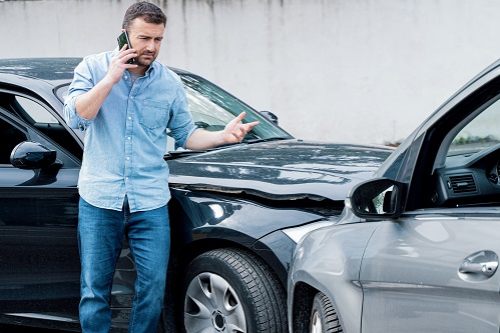- How much is gap insurance in Washington, D.C.?
- Cheapest gap insurance companies in Washington, D.C.
- Average gap insurance cost in Washington, D.C. by city
- How much is gap insurance in Washington, D.C. by age group?
- How does gap insurance work in Washington, D.C.?
- Where to buy gap insurance in Washington, D.C.
- Methodology
- Washington, D.C. gap insurance: FAQs
- Compare Washington, D.C. gap insurance rates with other states
How much is gap insurance in Washington, D.C.?
In Washington, D.C., gap insurance costs an average of $2,070 per year, but prices vary by company. Your car's value also affects the cost of gap insurance. Expensive or luxury cars depreciate faster than standard vehicles, so gap coverage may have to pay more, leading to higher rates.
Cheapest gap insurance companies in Washington, D.C.
The cheapest gap insurance in Washington, D.C. is offered by Progressive, with an average yearly cost of $2,070. Not all car insurance companies provide gap coverage, and rates can vary significantly among carriers.
Take a look at the table below to see the cheapest Washington, D.C. insurance companies for gap coverage.
| Company | Progressive |
| Auto insurance rates with gap premium | $2,070 |
| Gap premium | $82 |
Average gap insurance cost in Washington, D.C. by city
Washington Navy Yard is the most expensive to buy gap insurance with an average rate of $2,070, and Washington is the cheapest with an average of $2,070. Where you live in Washington, D.C. can affect your insurance rates. Auto insurance rates are higher in cities with more crime and theft since your vehicle is more likely to be damaged or stolen.
This table shows the average gap insurance rates by city for Washington, D.C.
| City | Auto insurance rates with gap premium | Gap premium |
|---|---|---|
| Washington | $2,070 | $82 |
| Washington Navy Yard | $2,070 | $82 |
How much is gap insurance in Washington, D.C. by age group?
Car insurance rates for younger drivers are more expensive because they are more likely to engage in risky driving and lack the experience needed to avoid accidents. Rates go down as the driver gets older. For example, at 18 years old the average rate is $14,142 a year, and at 25 the average annual rate is $2,354.
The table below shows the average gap insurance rates in Washington, D.C. by age.
| Age group | Auto insurance rates with gap premium | Gap premium |
|---|---|---|
| Teen | $14,142 | $352 |
| Young adult | $2,354 | $96 |
| Adult | $2,070 | $82 |
| Senior | $1,975 | $69 |
How does gap insurance work in Washington, D.C.?
When you buy or lease a new car, depreciationDepreciation is the decrease in your car's value over time due to wear and tear, age and mileage. Depreciation is used to determine the actual cash value of a vehicle in the event of a total loss. can quickly cause you to owe more than the car is worth. If your car is totaled, the insurance company will only pay out the car's actual cash value, which may leave you owing on the loan. That's where gap insurance comes in. If your vehicle is totaled or stolen, gap insurance covers the difference between your car's value and the loan payoff.
"Gap is designed for people that take long-term loans and/or roll taxes, service plans, or warranties into their loan," said Zack Pope, agency manager at David Pope Insurance in Missouri. "Most gap coverages only go a certain percent over market value to pay off a loan for a totaled vehicle (typically 25%). It costs significantly less money to get gap through your insurance than to purchase it from the dealership."
For example, let's say you have a $40,000 car loan, but your vehicle's actual cash value is only $35,000. If the car is stolen, your insurance company will reimburse you $35,000, minus your deductibleThe deductible is the amount you pay out of pocket for a covered loss when you file a claim.. Gap insurance would cover the remaining $5,000 that you still owe on your loan. Without gap insurance, you'd be responsible for paying this difference out of pocket.
You can drop gap coverage once your loan balance is below your car's value. While you can cancel gap insurance anytime, you may not be able to add it later. Most insurers require you to add gap coverage soon after buying a car.
Where to buy gap insurance in Washington, D.C.
Many insurance companies, including major providers, offer gap insurance in Washington, D.C. You can add this coverage to your existing car insurance policy or buy a standalone policy.
The best way to get gap coverage is to add it to your auto insurance policy. Car dealers and lenders also offer gap insurance, but their policies are mostly expensive, making them less budget-friendly.
Methodology
Insurance.com commissioned gap insurance rates from Quadrant Data Services in late 2023 at a variety of ages in all 50 states and Washington, D.C. Base rates use a 40-year-old driver with a 2023 Honda Accord LX. Rates were gathered from 138 insurance companies in 1,468 ZIP codes.
Washington, D.C. gap insurance: FAQs
Is gap insurance required in Washington, D.C.?
Gap insurance isn't required by Washington, D.C. law. However, your lender may require the coverage.
Who should buy gap insurance in Washington, D.C.?
You may need gap insurance if you have a car loan or lease in Washington, D.C. Drivers who make a small down payment typically owe more than the vehicle is worth since cars depreciate faster than the loan is paid down, making gap insurance a good idea.
You don't need gap insurance if you own your vehicle or make a large down payment so that you owe less than the car's value from the start of your loan.
What is standalone gap insurance in Washington, D.C.?
Standalone gap insurance is a policy of its own, not connected with your car insurance. Gap insurance is available from your lender or a private company as a separate policy.
Does gap insurance cover leased cars in Washington, D.C.?
Washington, D.C. gap insurance covers leased cars where the driver owes more than the vehicle's current market value. Over time, you may remove gap coverage once your vehicle is worth more than what is owed.
Compare Washington, D.C. gap insurance rates with other states
 You might also be interested in
You might also be interested in- Washington, D.C. car insurance laws and requirements: What is changing in 2025
- Washington, D.C. DWI and insurance: How much does a DWI raise your insurance?
- Speeding ticket calculator in Washington, D.C.
- SR-22 insurance in Washington, D.C.
- Non-owner car insurance in Washington, D.C. : Best and cheapest companies
- Low-income car insurance in Washington, D.C.: What you need to know
- Washington D.C. car insurance guide
- Washington, D.C. car insurance coverage calculator
- Cheapest car insurance for high-risk drivers in Washington, D.C.
- How much is renters insurance in Washington, D.C.?






